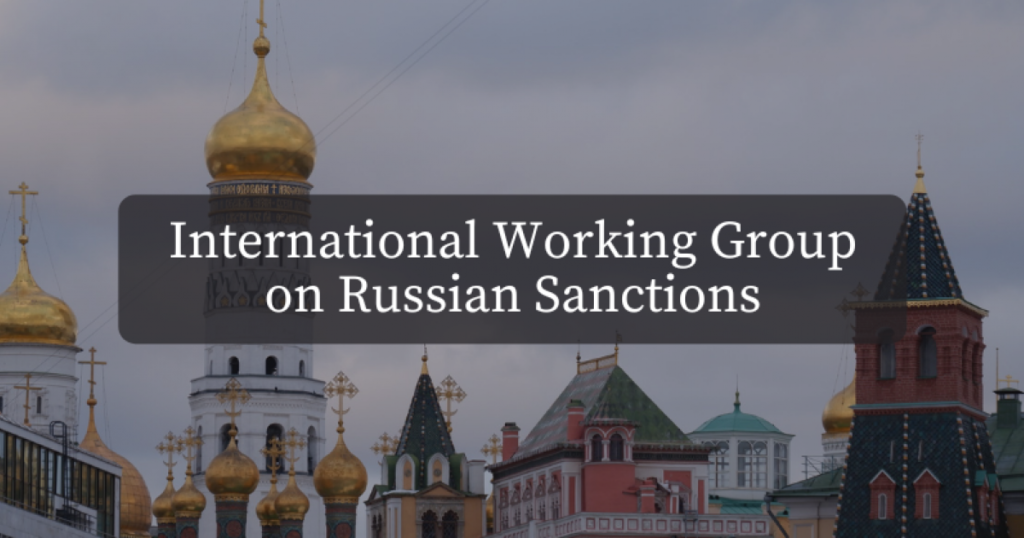Sanctions
Western Technology is Assisting Russia’s War Against Ukraine, Enabling Attacks on Civilian Infrastructure, According to New Expert Report
Western technology firms, including “tech giants” such as Google, Microsoft, Meta, and Apple, continue to provide hardware, software, and services that “underpin Russia’s military, military-industrial complex, and government”, according to an international working group on sanctions that are studied by the Ukrainian government.
The report published today claims that most of the products and services created by leading technology companies fall outside of the current sanctions regimes imposed on Russia by the West, leaving the firms to decide for themselves how to proceed.
The study, drawn up by leading lawyers, economists, technology experts and diplomats, calls on companies across the technology spectrum to “limit the damage their technology causes to the people of Ukraine, and the cost borne by the populations of sanctioning nations in paying for the damage this technology allows on Ukrainian soil.”
“Since Russia invaded Ukraine in February 2022, most services from major foreign technology companies continue to be available to existing clients within Russia,” says the report. “Russian devices continue to receive updates/software patches and continue to be exploited for battlefield uses by the Russian government.”
The report by the Yermak-McFaul International Expert Group on Sanctions – co-chaired by Andriy Yermak, head of the Ukrainian presidential office, and Michael McFaul, the former United States ambassador to Russia – claims that the same technologies that permeate our lives are also central to Russia’s war efforts. Devices such as smartphones, mobile operating systems, and cloud services are repurposed for “battlefield communications” and “real-time reconnaissance” objectives.
The study calls on Western tech companies to “disable” key services that assist the Russian armed forces. “To the extent that it relies on technology running via smartphones and similar retail end-user devices, the Russian military’s deadly operations in Ukraine rely on the panoply of foreign IT services present on foreign devices,” it reads. “Foreign corporations can disable key services on these devices that
render them largely unusable for military purposes.”
The working group makes similar claims about email, content sharing, and secure communications technologies. For example, the report notes that large social media platforms facilitate Russia’s ability to “spread disinformation outside Russia’s borders”. The report claims that technology from Western tech giants can indirectly facilitate Russian cyber-attacks on Ukrainian infrastructure.
“Russia relies on foreign IT to command and control its military, fire its weapons, perform reconnaissance, control the information space, attack Ukrainian cyber and civilian infrastructure, and protect its own infrastructure.”
“Foreign technology used by Russia includes everything from advanced email servers, network management capabilities, smart devices, software-as-a-service applications, crypto services, and video streaming all the way to Computer Aided Design and Manufacturing (CAD/CAM) and Building Information Modelling (BIM) capabilities, robotic components, device controllers, and engineering design, manufacturing, and simulation software.”
The report recognizes that technology firms face a fine balancing act, with several major companies such as Google and Microsoft also playing a leading role in helping the Ukrainian government to protect itself from identified cyber threats.
The report also calls for a ban on basic consumer goods being sold to Russia that are being absorbed into military equipment fabrication and repair lines. “The Russian military-industrial complex has resorted to using microchips from consumer electronics in order to produce/repair some types of weapons systems,” says the report. “Consumer digital cameras appear in its flagship drones. At this point, any foreign technology- or knowledge-transfer or digital infrastructure may eventually be used to sustain Russia’s military activity in Ukraine.”
“It is imperative that Russia must not access any IT in whatever shape or form that plays a role or could substitute for any item that plays a role, in sustaining Russia’s war in Ukraine.,” said the report. The report come days after it emerged that friendly countries bordering Russia have logged a sudden and unexpected increase in imports of washing machines, refrigerators, and electric breast pumps, raising
fears that the products may be assisting Russia’s war machine.
According to data from the EU’s Eurostat database, Armenia imported more washing machines during the first eight months of the year than it did during the previous two years combined. During August, Kazakhstan imported European freezers worth $21.4 million, more than triple the amount for the same period the previous year.
In the report published today, the working group also calls for the introduction of “fundamental regulatory and governance mechanisms” to “prevent dissemination of disinformation and misinformation from Russian and other malign actors.”
“IT companies must credibly commit to reducing content that amplifies and echoes Kremlin narratives,” states the report. “Advertising networks should be held in violation of sanctions for selling programmatic advertising space to any Russian entity and should be responsible for full ultimate-beneficiary verification.”
Commenting on the report, Andriy Yermak, the head of the Ukrainian Presidential Office, said: “The findings in this report are disturbing. I issue an immediate plea to all Western governments to tighten the sanctions regime against Russia. I also call on all Western companies to consider what more they can do themselves to end this disgraceful war of aggression.”
Michael McFaul, Former US Ambassador to Russia and co-chair of the international working group with Yermak, said: “These companies are not fundamentally malevolent. But as the war continues, it is necessary to evaluate the direct and indirect damage associated with the continued availability of certain infrastructure and services within Russia, and any potential ambiguity in the use of their technology.
“We trust that these companies – and the thousands of others still engaged in the technology ecosystem supporting Russia – will want to work in good faith with sanctioning-nation governments to find fast, effective, and complete solutions to limit further damage.”
About The Yermak-McFaul International Expert Group on Sanctions
Created pursuant to the initiative of Volodymyr Zelenskyy, President of Ukraine, the Yermak-McFaul Group comprises Ukrainian and international experts who advise on sanctions that could impact Russia, analyse their influence, and synchronise the efforts of democratic countries in sanctions policy.
The Group concentrates on 10 key areas, including expanding oil and gas sanctions, imposing new financial sanctions, strengthening individual and state-owned enterprises sanctions, increasing transportation insurance-related sanctions, and promoting relief to peace and reconstruction.
The Group includes expert members in areas of macroeconomics, behavioural economics, public finance, innovation and game theory, and is led by Andriy Yermak, Head of the Ukrainian President’s Office, and Michael McFaul, Director at the Freeman Spogli Institute for International Studies, former national security adviser to Unites States President.
Read More about the Yermak-McFaul Expert Group.







